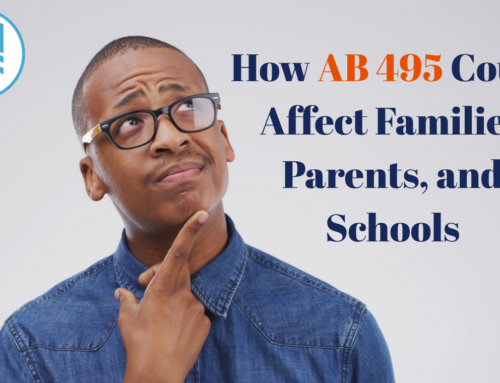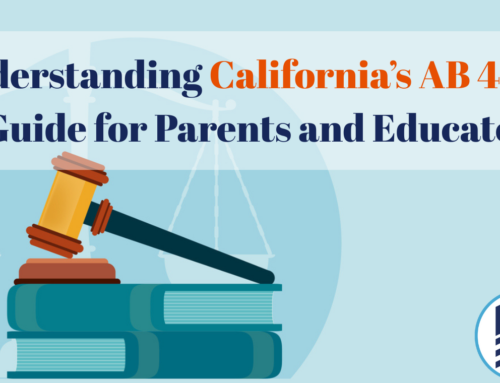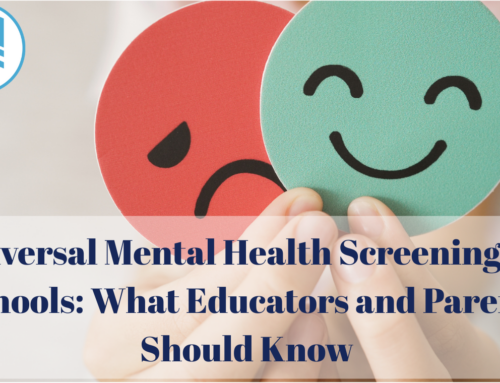
You’re not alone if you’ve wondered whether your child is safe perusing the library shelves alone.
For Stacy Langton, a Virginia mom whose older kids attend Fairfax High School, these concerns became a shocking reality. She had seen stories of school districts around the country where pornographic materials were found in children’s books. On a whim, she decided to check her kids’ school for the same material.
And she found it.
Two of the books that concerned her, “Lawn Boy” by Jonathan Evison and “Gender Queer: A Memoir” by Maia Kobabe, were accessible to her children. She brought the books to a school board meeting and confronted the members with the materials.
“Both of these books include pedophilia,” she said. “One book describes a fourth-grade boy performing oral sex on an adult male. The other book has detailed illustrations of a man having sex with a boy.”
The board reminded her that there were children in the audience.
At another school board meeting, a man was removed from the chambers for reading aloud excerpts from “Gender Queer.” In both cases, the books in question were immediately pulled for review—a process that doesn’t guarantee their removal.
Meanwhile, some are frustrated at the parental outrage.
Jonathan Friedman of Pen America, a nonprofit that “defends diversity, inclusion and free expression in literature” described moms and dads with concerns as, “parents who decide that they disagree, and that they must know better than those who are in the classroom.”
The American Library Association Office for Intellectual Freedom described parents’ actions as “ambushing board meetings…to fire up followers, foment fear among school board members, and generate viral clicks.” They encouraged people to reserve judgment and not form opinions on books, “based on provocative passages presented out of context”.
Out of context or not, you as a parent have the right to protect your child from materials you deem inappropriate.
The Difference Between Public Libraries and School Libraries
If you’re frustrated, you can do something about it.
Although you may meet with pushback, there are avenues for you to voice your concerns. Who handles your concerns depends on whether you’re working with a local library or a public school library. They operate under different governing bodies, and their protocols for receiving complaints may differ.
Public Libraries
Public libraries are usually established by a legal process such as a resolution or public referendum. Not everyone who works for a public library is involved in management and direction. Many employees are considered “library paraprofessionals” or “library support staff” and therefore aren’t the best candidates for your concerns.
Library management is usually handled by a board of directors, library council, or other local authority. Some small municipalities utilize the city or county government as their board of directors.
While some civic and volunteer organizations participate in library management, the ultimate authority to establish library policy rests with the library’s governing board.
School Libraries
In many public school libraries, the district establishes committees to manage library resources, leaving final decisions to the school library media specialist. Both committees and media specialists operate under school library policies that limit their autonomy. These policies reflect the school’s educational mission. In some cases, the school committees subscribe to policy and philosophy statements expressed by organizations such as the American Library Association.
The school board also plays a role, sometimes by establishing committees to review books that have caused concern. The role the school board plays may vary from state to state, but in some cases, school boards have exceeded the limits of their authority by removing books from school libraries.
This happened in 1976 at Island Trees School District in New York when school board members removed eleven “objectionable” books from the school library. Per school policy, the district formed a committee to review the books. The school board, however, ultimately rejected the committee’s recommendations and continued with its original plan of removing all eleven books. In 1982, the Supreme Court ruled that the Island Trees School District school board did not have absolute discretion over curriculum decisions and had violated students’ First Amendment rights.
Who To Contact When You Have A Concern
Whether it’s your local library or school library, asking what policies or procedures are in place to handle content concerns is the best place to start.
In your school, you can ask anyone from a teacher to a superintendent what steps you should take. In your local library, ask a librarian or library support staff. If they don’t have an answer, ask if they can refer you to someone who does.
And remember, in the process, you will encounter many education or library professionals who have no authority over what books are in the library. A little understanding and patience will go a long way in reaching the proper authority figures or governing bodies.
Reaching out to your public library
If you decide to voice your concerns to your public library, you may find the staff very receptive. Many libraries train their staff to hear your concerns about library resources, even if they don’t share your perspective or have no decision-making authority.
Here’s how the American Library Association teaches librarians to respond to complaints: “If the individual is concerned about a children’s or young adult resource, explain that parents and guardians play a major role in guiding their child’s reading and library use. Often a person’s concern about a children’s or young adult book involves a desire to “protect all children” by removing that item from the collection or restricting access to it. Explain that each family has the right to determine which library resources are acceptable for its children and must accord the same right to other parents.”
If you wish to go further than a conversation, your library may have a formal process where you can request that the library reconsider using the material in question. For example, at the Tyler Public Library, once a patron has submitted a formal request in writing, the Library’s Collection Development Committee will consider it and notify the patron of their decision within 30 days.
Reaching out to your school library
At your school library, the review process may look different.
In the case of Stacy Langton of Fairfax, VA, after she brought her concerns to the school board, they convened two committees. These committees were “made up of staff, students and parents led by [the] Library Services Coordinator to assess the suitability of both texts for inclusion in [the] high school libraries,” reports Fox News.
The school district said, “The recommendation of the committees will be put forward to the Assistant Superintendent of Instructional Services who will make a final decision as to whether FCPS continues to provide access to these books in our high school libraries.”
Whatever policies and procedures your school uses for formally handling library material objections, you can always talk to your school board. Whether the school board has ultimate decision-making authority or not, public speaking times are meant to be used as a forum where the community’s educational preferences and concerns are heard. Don’t miss this opportunity!
While you’ll certainly find avenues for voicing your concerns in both public and school libraries, you may not find the policies and procedures administered neutrally. Meg Kilgannon with Family Research Council explains, “Generally, the process for having books approved for the library or classroom use involves some level of ‘community input.’ But when you have a school board that’s made up of progressive school board members, the people that they’re going to select from the community are people who reflect their progressive values.”
How To Find Out If Your Library Has Objectionable Books
You can’t guarantee that libraries will only shelve books in your child’s best interests. In fact, the American Library Association believes that “school librarians are ethically responsible to provide access to resources with varying perspectives for students’ curricular and personal information needs.”
You as a parent may decide that certain “varying perspectives” are not healthy for your child. Sometimes, your best option may be providing healthy monitoring of your child’s access to library resources. Other parents have asked libraries to put sexually-oriented children’s books in a restricted section so that individual parents can choose whether or not their child is ready for those topics.
This list may give you an idea of what books other parents have found objectionable for a variety of reasons. The American Library Association Office for Intellectual Freedom also publishes lists of “Banned and Challenged Books” in celebration of Banned Books Week as they push back against parents and others who wish to limit children’s access to certain books.





[…] If you would like more information, check out our article on what to do if your local or school library puts out material not suitable f…. […]
[…] protecting kids from political agendas found in some Social Emotional Learning (SEL) practices, keeping explicit books out of school libraries, and learning how the Freedom of Information Act (FOIA) applies to school board […]